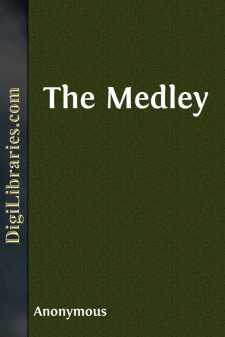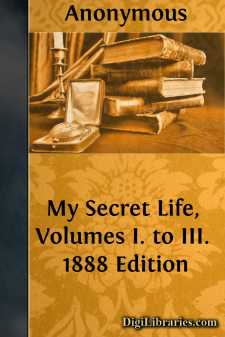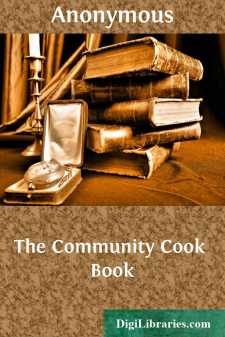Categories
- Antiques & Collectibles 13
- Architecture 36
- Art 48
- Bibles 22
- Biography & Autobiography 813
- Body, Mind & Spirit 142
- Business & Economics 28
- Children's Books 15
- Children's Fiction 12
- Computers 4
- Cooking 94
- Crafts & Hobbies 4
- Drama 346
- Education 46
- Family & Relationships 57
- Fiction 11828
- Games 19
- Gardening 17
- Health & Fitness 34
- History 1377
- House & Home 1
- Humor 147
- Juvenile Fiction 1873
- Juvenile Nonfiction 202
- Language Arts & Disciplines 88
- Law 16
- Literary Collections 686
- Literary Criticism 179
- Mathematics 13
- Medical 41
- Music 40
- Nature 179
- Non-Classifiable 1768
- Performing Arts 7
- Periodicals 1453
- Philosophy 64
- Photography 2
- Poetry 896
- Political Science 203
- Psychology 42
- Reference 154
- Religion 513
- Science 126
- Self-Help 84
- Social Science 81
- Sports & Recreation 34
- Study Aids 3
- Technology & Engineering 59
- Transportation 23
- Travel 463
- True Crime 29
The Medley
by: Anonymous
Description:
Excerpt
ANCHOR.
I love to look on an Anchor. Like a good friend who helps you in trouble, it holds the ship steady in a storm. Its flukes sink deep into the bottom of the sea, or cling to the rocks, and nothing but a great storm can separate it from the cable which is fastened to the vessel. Anchors are of solid iron and very heavy; and cables are made of hemp or of iron chain. Large ships have four anchors, small vessels two. Hope is called the anchor of the soul, because, as the ship is held by the anchor which lies in the sea, so the soul is supported by Hope which is cast in Heaven.
The Wind-Mill has sails fixed to very long poles, and when the wind blows strong, round go the wings. As the wings blow round, they carry round a large stone inside the house; this stone rubs on top of another mill-stone, and corn is put between them, which is thus broken and ground into meal. We cannot eat corn till it is ground; but horses can. Some mill-stones are likewise carried round by a stream of running water, and some by the steam of boiling water. There are a number of water-mills on the Mill-dam which leads from Boston to Roxbury.
There is a wind-mill in Boston, which stands in Sea-street, near the new bridge to South-Boston.
There is a steam-mill next to the iron-works at South-Boston, which grinds corn and grain.
FLAG.
Here waves the Flag, which all nations respect. It is sometimes called The Colours. In war, the soldiers carry a Flag waving over their heads, to show, that, as long as it is raised, they are not beaten; and the soldiers look to it as a place or rallying point where they must all join if forced to separate. Flags are hoisted on a ship's mast to tell to what nation she belongs, and every nation has a different one. The American Flag has thirteen stripes, to show how many States first formed the United States, and it has as many stars as there are States at this time.
Did you ever see a tent? This sort of house is common in warm climates. The Israelites, of whom you read in the bible, lived in tents forty years. Soldiers live in tents, when they march from home; and at night they take the canvass out of their waggons or baggage-carts, and pitch the tents in any convenient field. Four soldiers live in one tent, and lie upon clean straw, taking their knapsacks for pillows. Their guns and their swords are hung around overhead.
CANNON.
When the cannon is fired only for the purpose of noise, no ball is put in; nothing but powder and the wad. On Washington's birth-day, on the fourth day of July, and on some training days, cannon are used to make a noise, and the louder it is so much the better. Never be afraid of the cannon noise when there is no ball to hurt you.
You all know what a clock is, and how it strikes every hour. One, two, three, four, five, six, seven, eight, nine, ten, eleven, twelve. It then begins one again, and so goes on, and has no end. In the middle of the day it strikes twelve, and in the middle of the night also....












